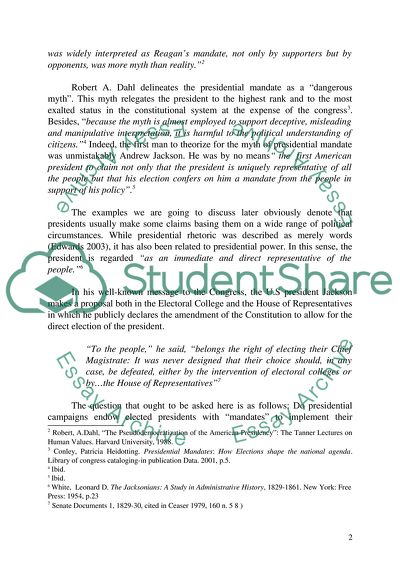The Question of the Importance of Presidential Mandates Essay Example | Topics and Well Written Essays - 1500 words. https://studentshare.org/politics/1727696-the-myth-of-presidential-mandate
The Question of the Importance of Presidential Mandates Essay Example | Topics and Well Written Essays - 1500 Words. https://studentshare.org/politics/1727696-the-myth-of-presidential-mandate.


